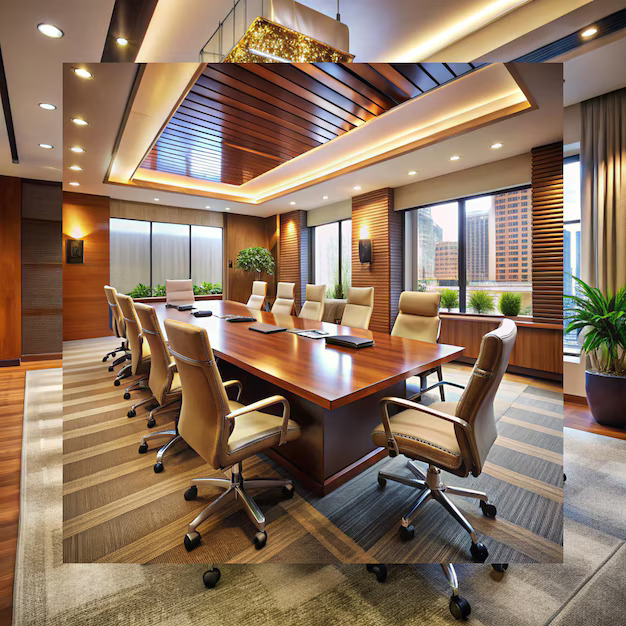Businesses often book meeting rooms expecting a straightforward rental fee. Yet, unexpected expenses can significantly raise the total cost. Many providers list an attractive base price but do not disclose additional charges upfront. Understanding these hidden costs helps avoid surprises and ensures proper budget planning.
Meeting Room Hidden Costs
Extra Charges for Amenities
Meeting rooms in Hyderabad or any other city come with basic setups, but essential features often cost extra. High-speed internet, audio-visual equipment, and whiteboards may not be included in the advertised price. Some venues charge separately for microphones, speakers, projectors, or video conferencing tools. If refreshments are provided, coffee, tea, and snacks may carry additional costs. These charges add up quickly, making a seemingly affordable space more expensive than anticipated.
Service Fees and Administrative Costs
Some venues impose service fees for booking assistance, room setup, and on-site staff support. Administrative costs might apply if changes to reservations are needed. Businesses that frequently adjust schedules should check whether modification fees apply. Cancellation fees are another expense to consider. Some providers offer partial refunds, while others charge the full amount regardless of when the booking is canceled.
Overtime Charges
Many venues have strict policies on usage duration. Exceeding the allotted time can result in overtime fees. These charges often increase on an hourly basis, sometimes at premium rates. It is important to check how much flexibility the provider allows. If meetings tend to run longer than expected, booking extra time in advance is a better option than paying last-minute penalties.
Parking and Accessibility Costs
Not all meeting venues offer complimentary parking. Locations in business districts may have limited parking spaces, leading attendees to rely on paid parking lots. Some venues provide valet services, but these come at a cost. If accessibility is a priority, confirming whether public transport options are nearby can help attendees avoid additional travel expenses.
Cleaning and Maintenance Fees
Some meeting spaces require guests to leave the room in its original condition. If extra cleaning is needed, an additional charge may apply. Food spills, trash left behind, or significant wear and tear can lead to unexpected costs. Some providers include cleaning in the rental price, while others charge separately. Checking the cleaning policy beforehand prevents surprises after the event.
Catering and Beverage Markups
Bringing in outside food is often restricted in many meeting venues. They may have exclusive catering partners and charge markups on food and beverages. Even simple refreshments like bottled water and coffee can be significantly more expensive when sourced from in-house vendors. If external catering is allowed, there might still be an extra fee. Clarifying catering policies helps in managing costs better.
Security Deposits and Damage Charges
Many venues require a security deposit, which is refunded after the event, provided no damages occur. If furniture, equipment, or decor is damaged, the deposit may be withheld partially or entirely. Even minor incidents, such as accidental spills on carpets or scratches on tables, can result in unexpected deductions. Checking the terms related to damage fees before booking helps in avoiding disputes later.
Internet and Technical Support Fees
Reliable internet is crucial for business meetings, especially those involving virtual participants. While many venues advertise free Wi-Fi, they often provide only basic speeds. Faster connections for streaming or video conferencing might come at an extra cost. Some providers also charge for on-site IT support, which becomes necessary when troubleshooting connectivity issues or setting up equipment.
Branding and Customization Fees
Some businesses require customized setups for meetings or presentations. Adding a company’s logo to digital screens, rearranging seating, or using branded materials may incur extra fees. If a venue offers branding options, checking whether they come at an additional cost can prevent unexpected expenses.
Weekend or Peak Hour Pricing
Meeting room rates often fluctuate based on demand. Booking a room during peak business hours, weekends, or public holidays might attract higher fees. Some venues adjust their pricing based on time slots, charging more for morning or evening meetings compared to midday sessions. Knowing these pricing variations helps in selecting time slots that fit within the budget.
Technical and AV Setup Fees
Even if a meeting room includes basic audiovisual equipment, using it might require technical assistance. Some venues charge technical setup fees for configuring microphones, cameras, or projectors. If a team lacks expertise in handling such equipment, paying for professional support may become necessary. Checking whether these services are included or charged separately helps in planning accordingly.
Unexpected Taxes and Surcharges
Many locations impose service charges, government taxes, or other levies that are not included in the advertised rate. Some venues add surcharges for energy consumption, especially for events requiring extensive lighting or electronic usage. Carefully reviewing invoices and rental agreements ensures all costs are accounted for.
Conclusion
Booking a meeting room involves more than just comparing rental fees. Hidden costs can quickly inflate expenses, leading to budget overruns. Understanding additional charges for amenities, services, and time extensions helps in making informed decisions. Carefully reviewing contracts, clarifying pricing details, and discussing terms in advance prevent unexpected costs. With proper planning, businesses can secure meeting spaces that meet their needs without exceeding financial expectations.




